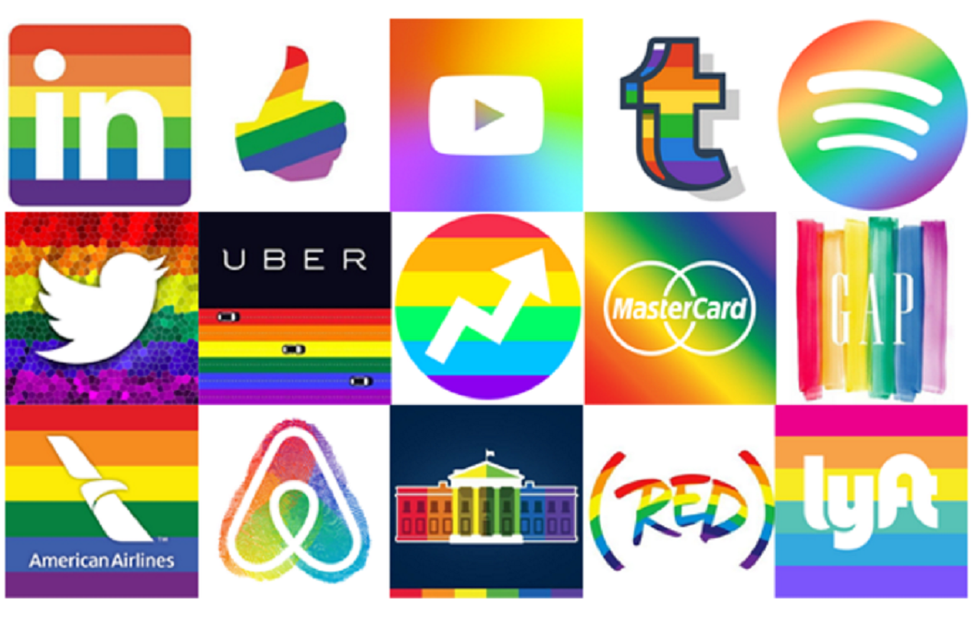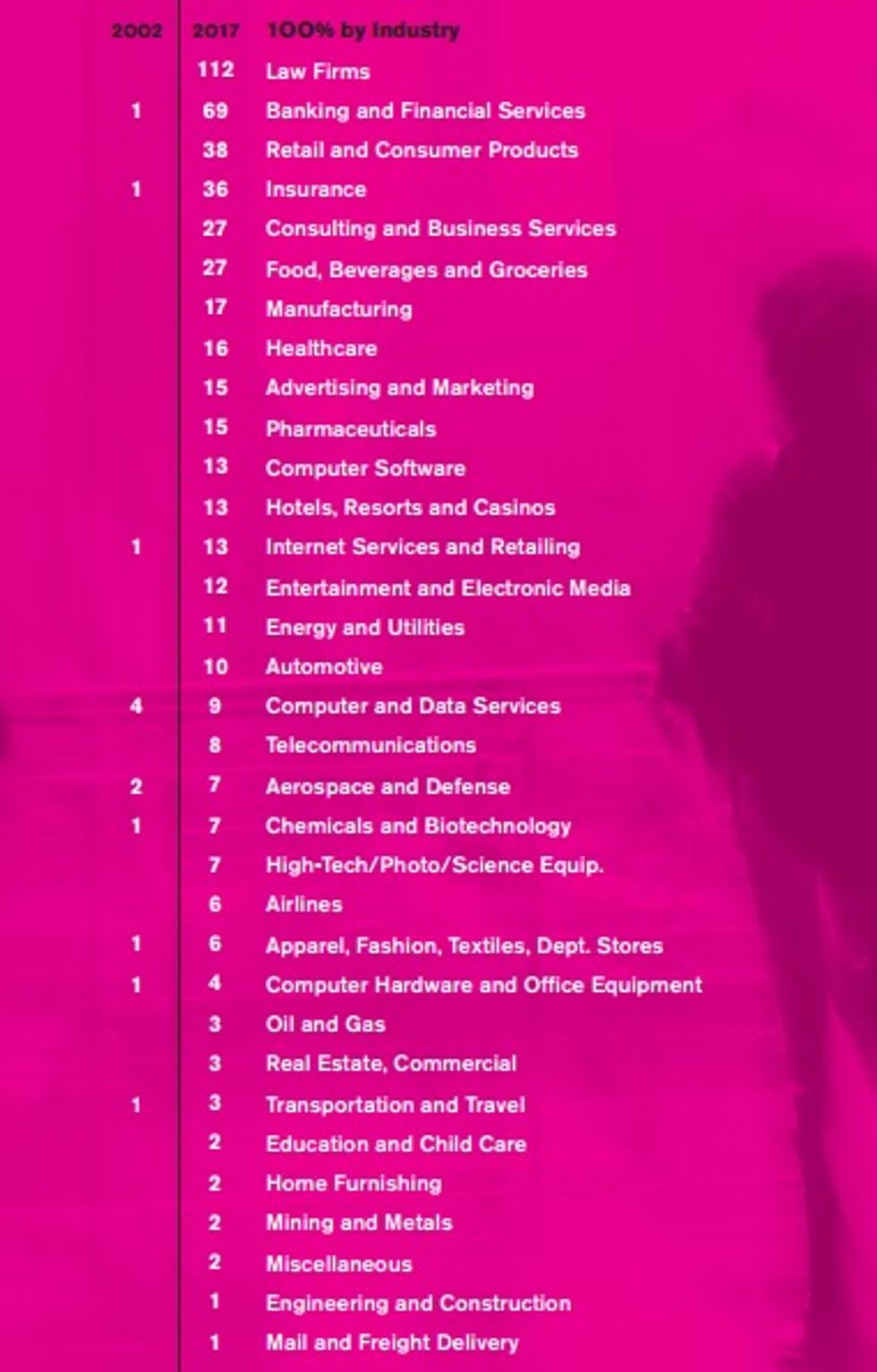We’re just over halfway through Pride Month, and it’s been an eventful couple of weeks. Between pride parades, and other LGBTQ-centered events and discussions, the word seems to be out there more than ever, which is great! Brands everywhere seem to be sporting their rainbows, along with social media hopping on the band wagon (Facebook with its rainbow reaction, and Snapchat coming up with different pride filters almost every day) to show their version of support. It’s the loudest I’ve ever heard corporations show their support for the LGBTQ+ community, and that’s great.
However, the fact that this year everyone seems to be plastering rainbows all over their storefronts -- despite never having vocalized their comradery with the queer community before. This raises a few concerns for those of us in the community, and those who have been our long-standing allies. For example: Why now? Because while there’s never a bad time to be an ally, it seems a little too serendipitous that lately all the brands are coming out of the woodworks with their rainbow warpaint.
My fear, and the fear of others in the LGBTQ+ community is that this support is only skin-deep. Support and a helping hand to fight for my rights isn’t a trend to take a part in for thirty days out of the year, and then bow out when it’s not “trendy” anymore. My human rights aren’t a sales tactic, and not something to be capitalized on or monetized. There are places around the world (and even in these very United States, whether you want to admit it to yourself or not), where it is not safe to be an out-and-proud member of the queer community. And that’s a problem that needs to be addressed ASAP. If corporations really want to help us fight the good fight by sponsoring programs and pride events, then I am all for it. But something tells me that once the calendar flips to July -- the colors that you’ve been seeing on your newsfeed and in commercials for the past few weeks, will fade rather quickly.
So, rather than sitting here and writing about all the companies who colored-up their advertising, I decided to do some digging and consulted the Human Rights Campaign to find out which companies are really supporting and being allies not only to the community as a whole, but to those who are filling their ranks. I wanted to know who is working to make the lives of LGBTQ+ members better 365 days a year. The HRC releases an annual Corporate Equality Index, which rates (out of 100) numerous Fortune 1000 companies based on:
-Equal employment opportunity policies that account for sexual and gender identity (for their own companies and the vendors that they work with)
-Partner benefits that are equivalent to the husband-wife spousal benefits that they offer
-Trans*-inclusive healthcare
-Diversity training and non-discrimination policies for all levels of employees and management
-LGBTQ+ public commitments, such as donating to LGBTQ+ organizations, actively not donating to/working with organizations that don’t support the community, inclusive advertising, etc.
The document itself goes into more depth for each criterion, but that’s the basics of what you need to know for how the scoring works. I didn’t go into this with overly high hopes, I’ll be honest about that. But out of the 887 companies that responded to the HRC survey, a whopping 58% got a perfect score of 100 -- a fact which left me shocked and pleasantly surprised. Not only did they provide a breakdown of companies by industry, and by their score for this year, but also their score for the year prior to see the improvement for some of these companies; or lack thereof. For this article I wanted to highlight some of the top-scoring companies that you and I probably hear about or see every day, and some of the low-scoring companies that we’ve grown familiar with as well.
Some of the straight-A companies were: Apple, AT&T, Ben & Jerry’s, Coach, CVS, Facebook, General Mills, Groupon, McDonald’s, Netflix, Starbucks, and Target. While scoring 100% on the HRC survey doesn’t excuse any wrong-doings that these corporations have committed, it does show that on at least one front they are taking steps in the right direction (plus, I’m super excited to know that my favorite ice cream company supports my community). These are just some of the most popular corporations that I spotted. But, there are hundreds more out there fighting the good fight to protect their LGBTQ+ employees and supporting the queer community as a whole. Nearly 60% of the Fortune 1000 companies that responded are working for equality on all fronts and for me, that’s something that is immensely reassuring. While corporations doing good doesn’t always equate to people in general doing good, it’s a tremendous start in pushing things in the right direction.
However, this means that there are still a lot of companies out there who aren’t doing as much as they can, or as much as they should be doing to protect their employees and ally themselves with the LGBTQ+ community. Even outside of the Fortune 1000 list, I'm sure you've heard about companies and CEO's who not only don't do anything to support the LGBTQ+ community, but actively have made comments against it (we're looking at you, Chick-fil-A). I’ve only chosen a few, and I picked corporations that scored less than 50% on the survey. Some of our less-than-stellar performers are: Advanced Auto Parts, Acer America Corp., AutoZone, Dole Food Co., RadioShack, Lowe’s, SLM Corp. (Sallie Mae), Winn-Dixie Stores Inc., Pep Boys, and Dick’s Sporting Goods.
I’m not listing these to necessarily try and tell you to never shop there ever again (although boycotts can bring about change when they are done correctly), but there are other actions to be taken as well. Speak out against these companies who are still, in 2017, getting away with not protecting their own employees. Especially aside actively supporting the LGBTQ+ community outside their own walls. Write letters, make phone calls -- just make yourself heard if this is something that bothers you. Again, this isn’t to say that this means that every single person is a part of those corporations are against the queer community. It means that the company’s leadership teams aren’t looking out for the people who are making their companies and successes possible. They're the ones that you should be frustrated with, not the cashiers and sales people who are working there just trying to make ends meet. There is still work to be done, but in the last fifteen years, so much progress has been made. For a frame of reference, here’s a list broken down by industry, of companies that scored 100% in 2002, compared to this year in 2017:
In case you don’t want to do the math, only 13 companies got a perfect score in 2002, compared to the 515 that did this year. If anything, this shows the tremendous progress that has been made in only fifteen years. Imagine what we could do with fifteen more?
Reading through the statistics and the lists was certainly an eye-opener for me, and it brightened the horizon a little bit as well. If there’s anything that I want anyone to take away from all of this it’s that progress is constantly being made, even if it’s not dancing in front of you decked out in rainbow flags. It gave me hope for the future of the LGBTQ+ community and the fact that we’re gaining rights on all fronts, including professional ones. We still have a long ways to go, but we’ve already come so far.
People make up companies, and companies make up industries. If we want to see the change continue, it starts with you and me. Here’s to the next fifteen years of progress, and all of the ones after that!


















